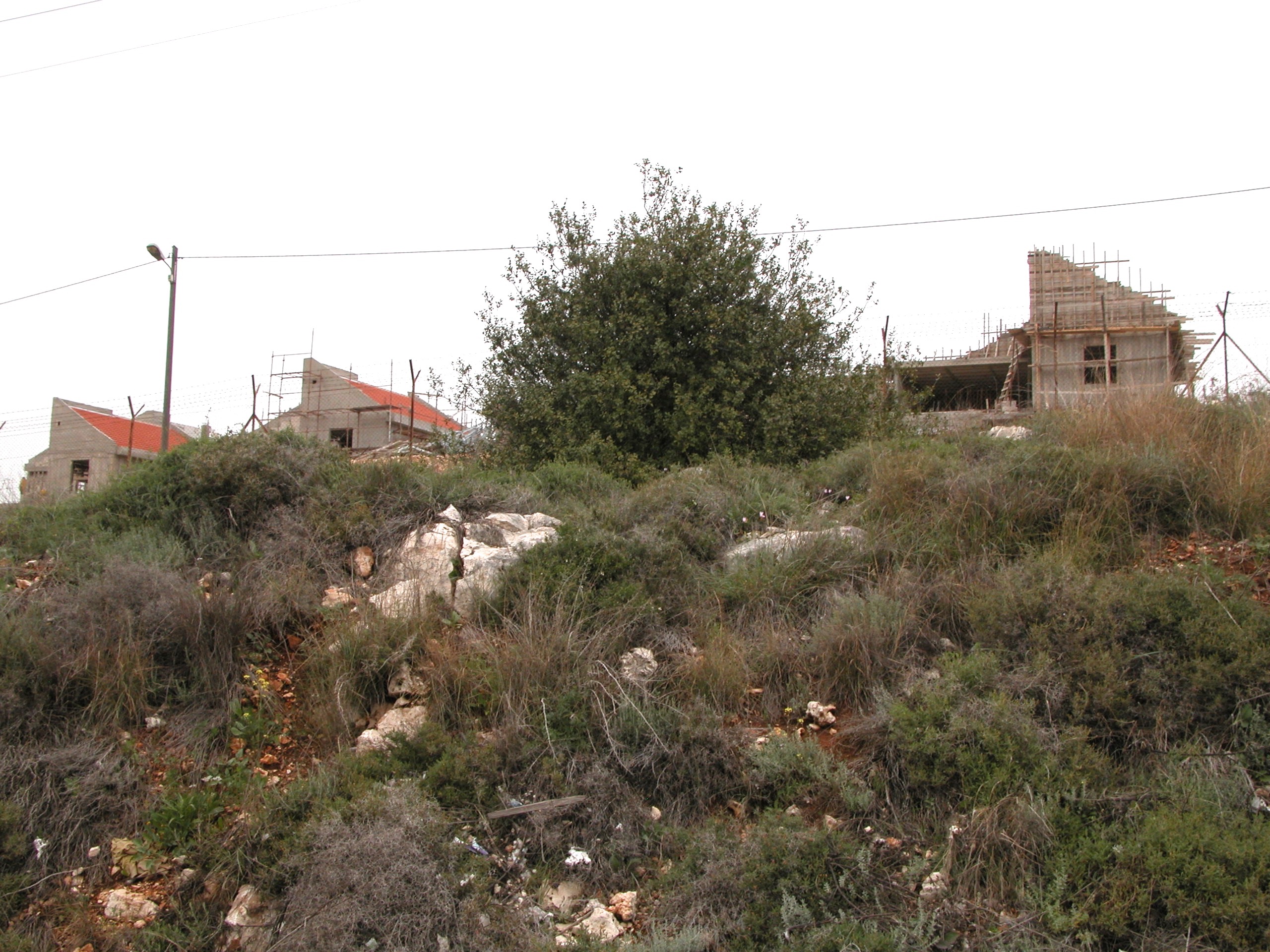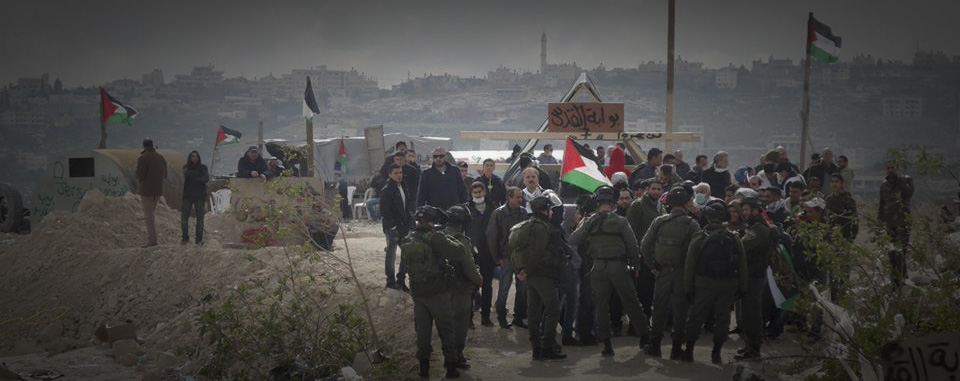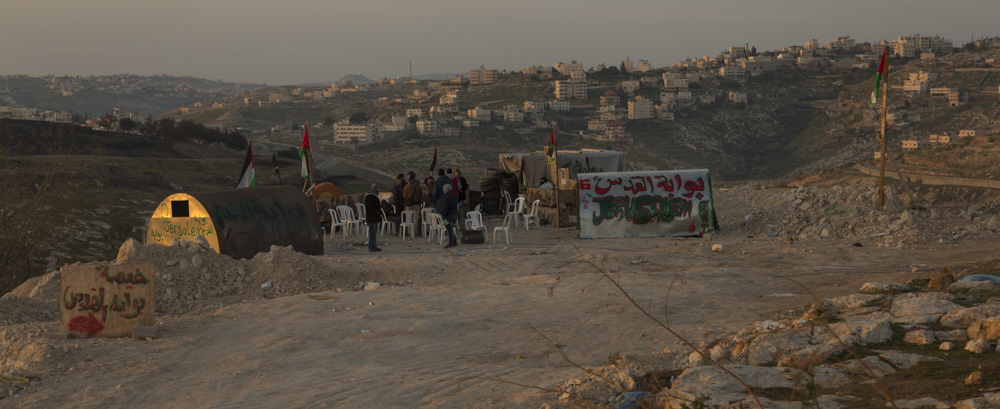Colonization of Palestine is accelerating. Everywhere new settlements, or colonies, grow up like mushrooms in a damp forest.
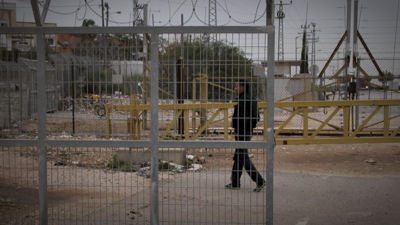
Colonists in majority
In Salfeet area there are now 19 Palestinian villages and 25 Israeli colonies. A new road between the colonies and the other side of the Green line is only for Israelis. According to the municipality leaders of Salfeet there are now 63 000 Palestinians and 75 000 colonists in the area. New colonies are being planned and destruction of land and livelihoods for the Palestinian people is continuing. Just recently, the occupation authorities have notified the owners of some 2000 olive trees that these trees will be uprooted. The area targeted this time is located in the middle of three large new colonies close to Ariel West Industrial Area and the new Barqan Industrial Area.
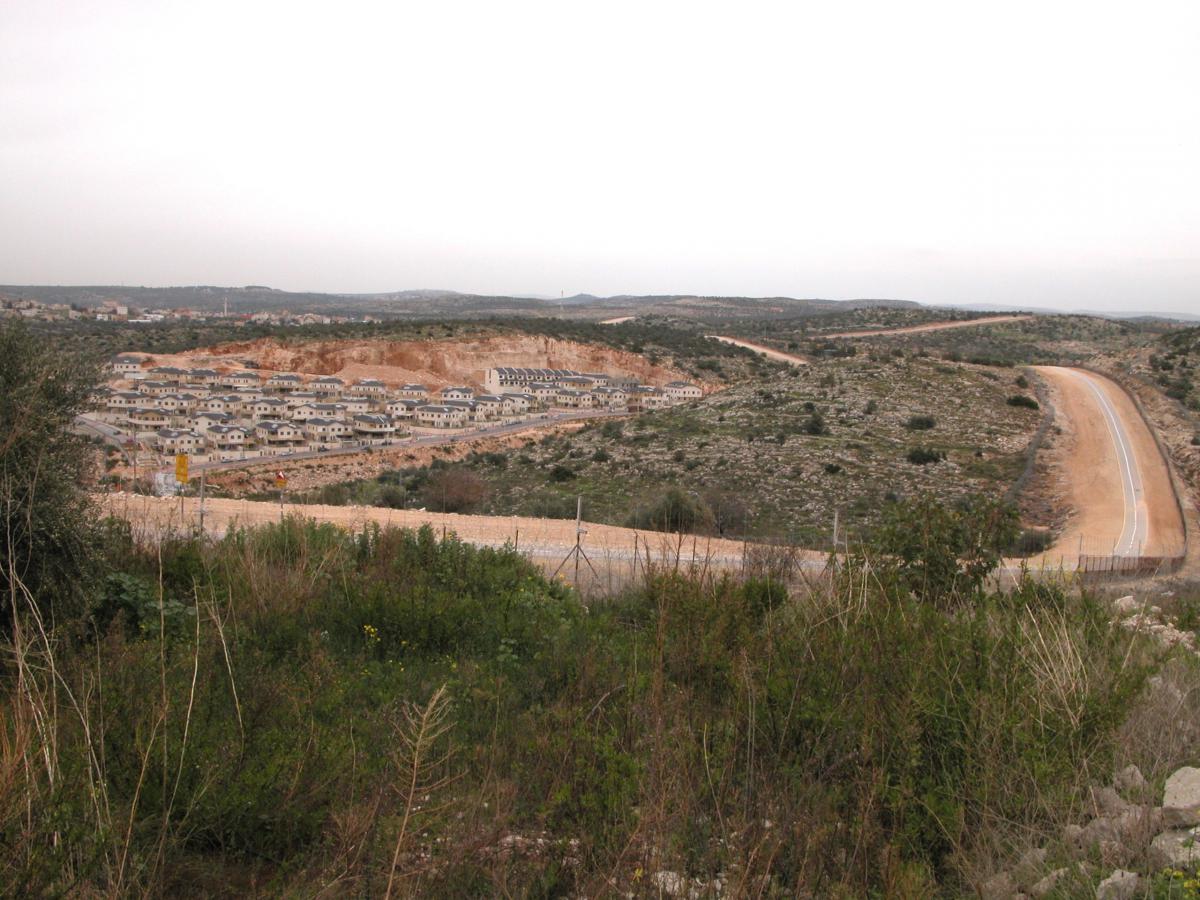
Israel devides the West Bank
The settlement expansion in Salfeet area is a part of the Israeli plan to split the West Bank from the Green line (the 1948 armistice line) to Jordan by expanding the so-called Ariel finger across the whole width of the West Bank and to annex the entire area. This will make contact between the northen and the central part of the West Bank still more difficult than today, with permissions required, all main roads reserved for Israeli citizens, and many military checkpoints to pass.
Salfeet is also a strategically important area to gain control over. Some of the biggest groundwater resources in Palestine are located in the area. Natural gas has as well been discovered in the area. Control over energy sources have been reason for imperialistic wars in the Middle East for decades, and one of Israel's geo-political strategies have been based on the need to control water resources.
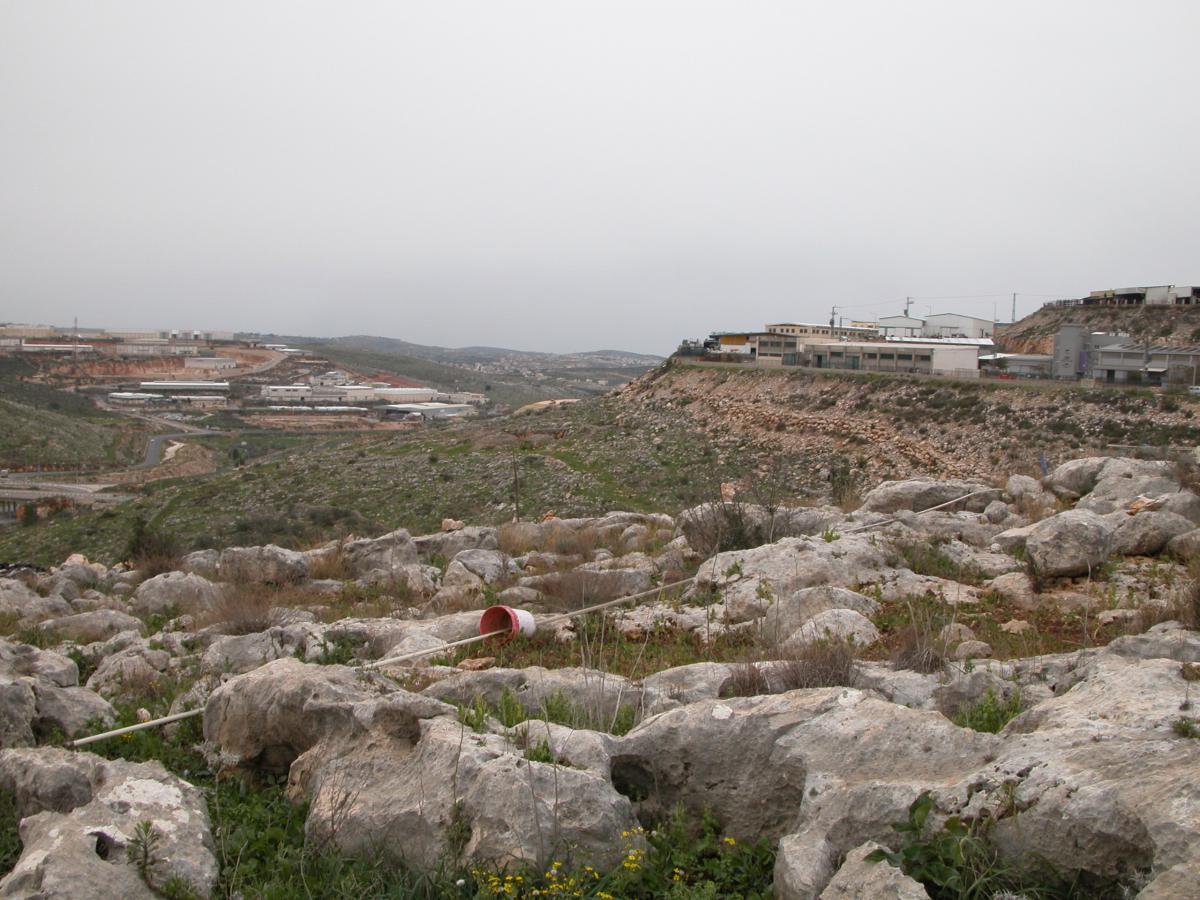
Israeli and foreign companies
Large industrial plants are operating in the colonies where Palestinians are exploited in extremely poor working conditions. They receive lower payment and have to work in worse conditions than Israeli workers in the same companies. Yet, the systematic destruction of the Palestinian economy by the Israeli occupation forces some 3-4000 Palestinians to earn their income from these industrial zones. As a further hazard to the lives of the people in the area, these industrial plants are not obliged to respect Israeli environmental laws and therefore create pollution and emissions of toxic gases and often dump their waste and sewage water into Palestinian land.
No rules for Israel
The Israeli large-scale policy of home demolitions have created an atmosphere in which Palestinians living on their own land for many generations, are only waiting for the bulldozers to change their homes to piles of stones. Since 1967 Israel demolished over 27 000 built up structures in the West Bank and only in 2014 UNOCHA counted the destruction of 590 Palestinian buildings by Israel. One villager says that:
«I and my family have lived here for generations, but now my land is in the Area C, which according to the Oslo agreement should be under Israeli control until Palestinian authorities should take over after five years. That was many years ago now. According to Israeli law my house is built «illegally» and I am waiting for it to be demolished. The settlers can build wherever they want with no problems. We can not use our farmland, but it is no problem for the settlers to grow what they want where they want».
The settlers refuse to depurate their sewage that comes from the factories and continue to contaminate and poison Palestinian farmland.
Some Palestinian families have given up and left, but the great majority stays to defend their land and rights.
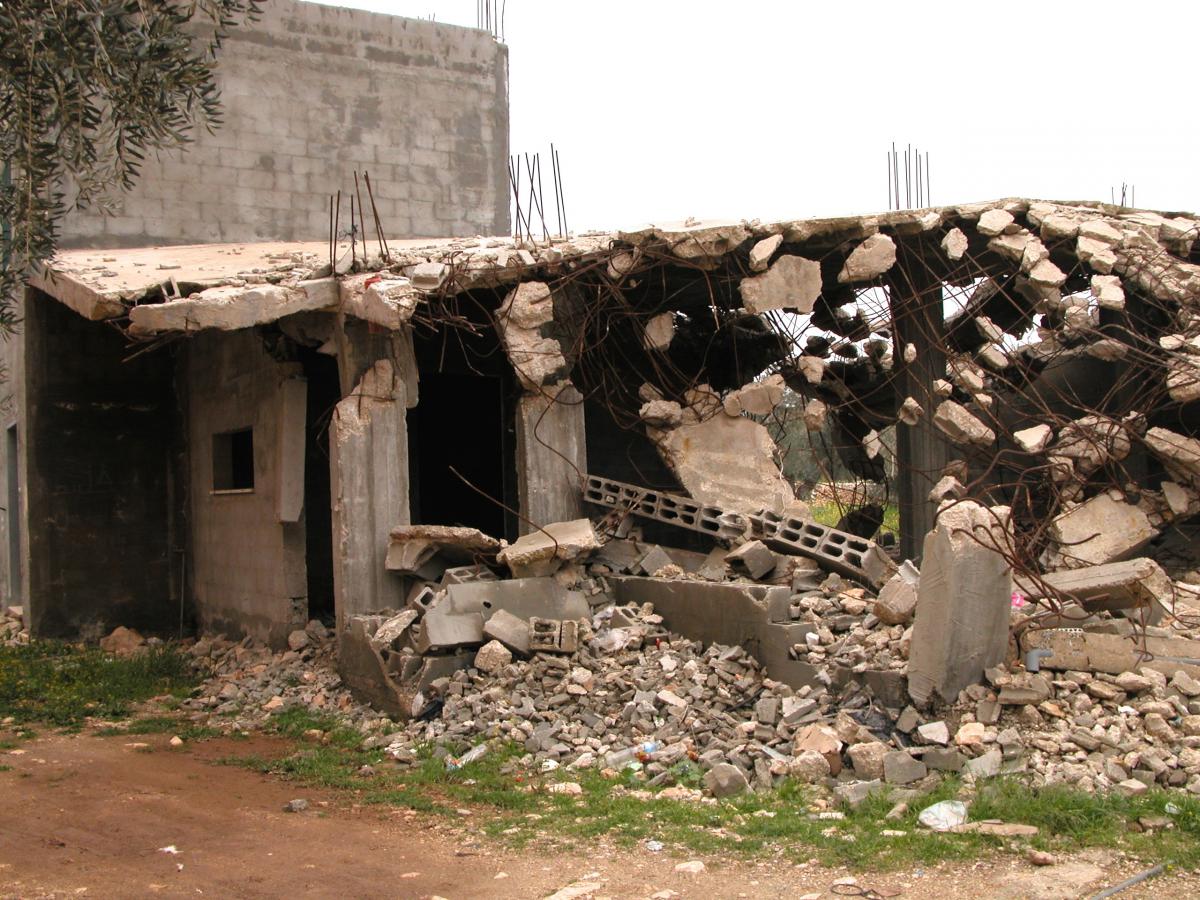
Ruins of demolished houses can be seen in the village, but in one house there are still two rooms left, and the family still lives there. Protests and demonstrations from the villagers saved one little part of this home.
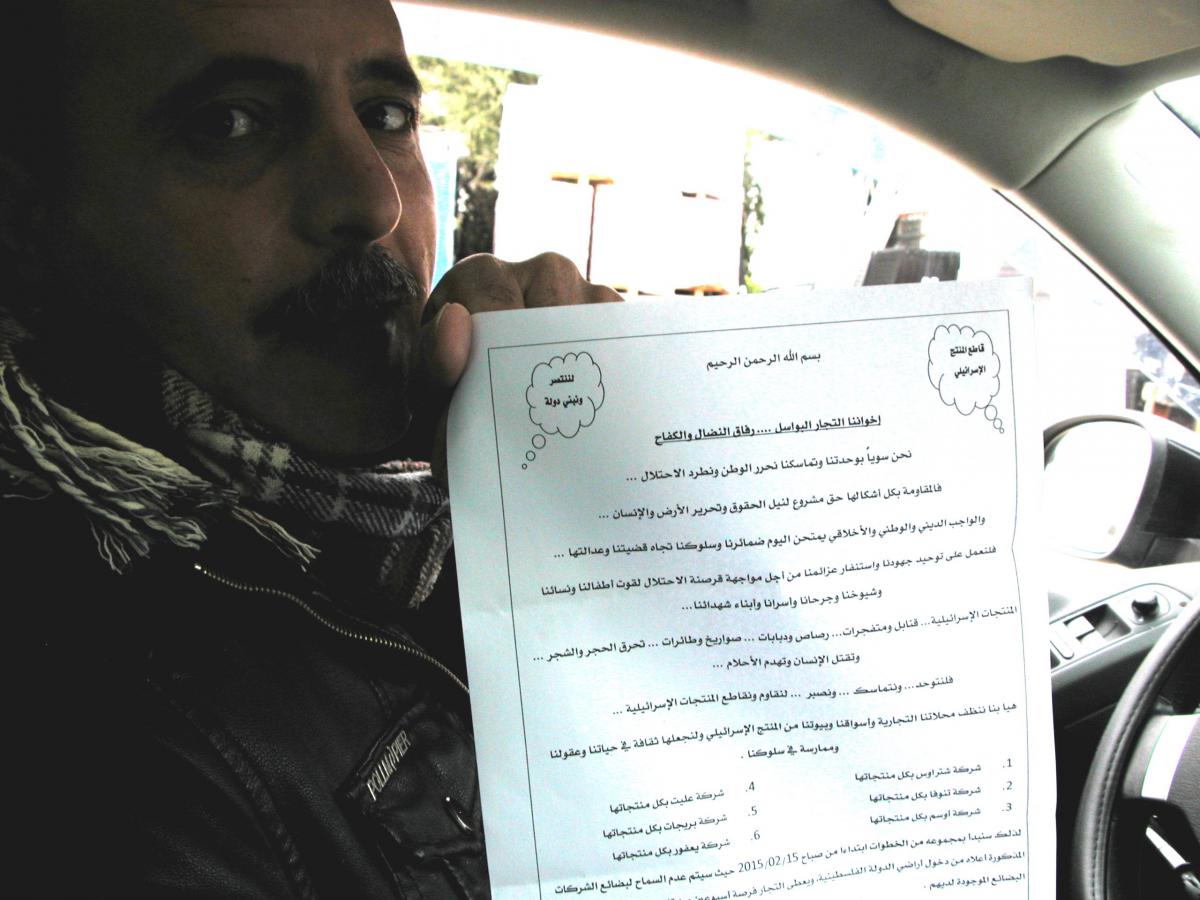
Resistance
The resistance continues and the boycott of Israeli products is now spreading again in Palestine. In a captive economy such as the occupied West Bank and Gaza it is extremely difficult to effectively boycott the Israeli economy, but it can be an important step to ensure Isael cannot profit from the occupation.
Last week, a decision has been made to outlaw the import and commercialization of products from six Israeli companies and activists are handing out letters informing shopkeepers of the new rules and explaining the importance of not selling Israeli goods.

